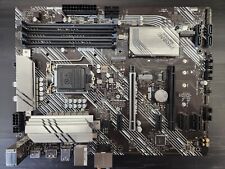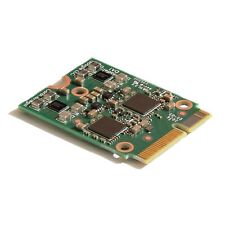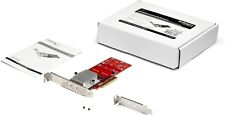Dual M.2 NVMe Ports RAID to PCIe 3.0 x16 Interface x8 Bandwidth Riser Controller For Sale

When you click on links to various merchants on this site and make a purchase, this can result in this site earning a commission. Affiliate programs and affiliations include, but are not limited to, the eBay Partner Network.
Dual M.2 NVMe Ports RAID to PCIe 3.0 x16 Interface x8 Bandwidth Riser Controller:
$308.99
With a unique solution that offers true driverless installation, we integrate NVMe technology into a custom designed and manufactured PCIe RAID controller card for OEM/ODM customer projects. An innovative NVMe switch chipset will deliver up to four channel connectivity via a PCIe 3.0x8 and x4 host interface. Integrated RAID 0, 1, & 10 is compatible for Linux and Windows operating systems at x86 hardware platforms.
- Requires Linux OS to configure the RAID mode.
- RAID configurations are transparent for the operating system platform.In addition, driver support is embedded into most current operating system platforms. Marvell® 88NR2241 based NVMe RAID controllers are natively supported by Windows 10, Windows Server2016 and Windows Server 2019, and Linux distributions that utilize kernel v3.10 or later.
- SMART data is critical for maintaining healthy, long-lived NVMe configurations, especially those designed to accommodate professional and industrial storage applications.
Powered by SixBit\'s eCommerce Solution

Related Items:
ASUS Prime Z490-P LGA 1200 Intel 10th Gen ATX Motherboard (Dual M.2, DDR4 4600)
$35.99
Google Coral M.2 Accelerator with Dual Edge TPU
$79.99
StarTech Dual M.2 PCIe 3.0 SSD Adapter Card PEX8M2E2
$150.00
![]()
Documentation
- AIX Local Security Checks
- Backdoors
- CentOS Local Security Checks
- CGI abuses
- CISCO
- Databases
- Debian Local Security Checks
- Default Unix Accounts
- Denial of Service
- Fedora Local Security Checks
- Finger abuses
- Firewalls
- FreeBSD Local Security Checks


